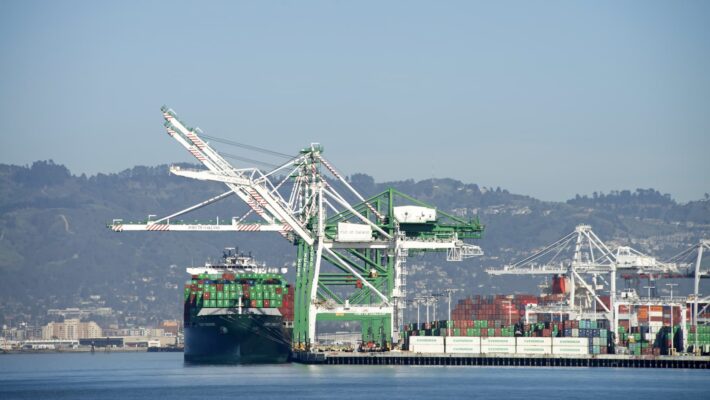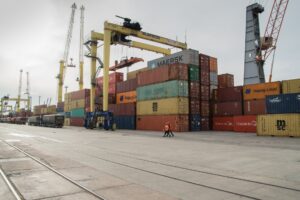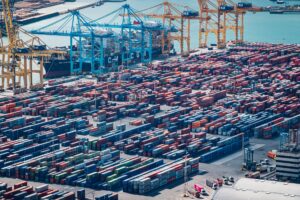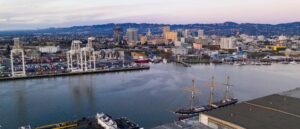This afternoon, several ports across the West Coast closed abruptly due to union workers walking off the job. The Port of Oakland experienced a closure on both the TraPac and its largest, the SSA terminal. The Ports of Los Angeles and Long Beach similarly had terminal shutdowns due to insufficient labor. Negotiations between the PMA (Pacific Maritime Association and the ILWU (International Longshore and Warehouse Union) have reached a boiling point. To show their frustrations over insufficient wage talks, ILWU workers have gone on strike, affecting port operations.
Other West Coast ports like the Ports of Tacoma and Seattle have also seen slowdowns or closures of terminals. The president of the ILWU, Willie Adams noted, “Any reports that negotiations have broken down are false”. However, a separate statement by the ILWU Local 13 division stated, “Southern California ILWU has taken it upon themselves to voice their displeasure with the ocean carriers’ and terminal operators’ position.” The Covid-19 shipping boom has been one of the catalysts that have led to current tensions. ILWU believes that workers have risked their lives to move cargo during the surge while employers have reaped the benefits. Negotiations also included health and safety concerns with the statement that 43 ILWU workers died from working from 2021 through 2022.
A similar 24-hour shutdown of the Ports of Los Angeles and Long Beach was experienced from April 6th to 7th. The closure was also because of limited ILWU port workers showing up due to inadequate contract negotiations. Since July 2022, more than 22,000 dock laborers have worked without a contract. During that year, the ILWU and PMA reached several “tentative agreements”; however, tensions remained. Both sides believe that a signed contract must be in place to stop protests and shipping slowdowns. Current shutdowns may continue to expand across the West Coast ports as the lack of sufficient labor increases.
What does this mean for shipping?
The Ports of Los Angeles, Long Beach, and Oakland are known as the largest ports in the U.S. With the extensive amount of freight that passes through the ports daily, a closure can have a huge impact. ILWU contract negotiations began over a year ago and previous shutdowns have gained attention from shippers in the past. While some shippers responded by moving their cargo to other ports when tensions arise, import volumes have remained high. The Covid-19 shipping surge increased the amount of cargo transported internationally and imported into the U.S. Since most of the goods imported to the U.S. come through the West Coast ports, congestion rose.
Shippers responded by moving their imports to East and Gulf Coast ports. West Coast ports have only recently recovered volume amounts. Current terminal closures may have a reverse effect and recreate the slowdowns felt during the pandemic. With the holiday and back-to-school seasons quickly approaching, shippers must be prepared for potential delays. Despite the current circumstances, West Coast port operators and directors are optimistic regarding a quick recovery. Port of Oakland director Bryan Brandes stated, “We are optimistic about a stronger second half of 2023 for the amount of cargo moving through Oakland,”





